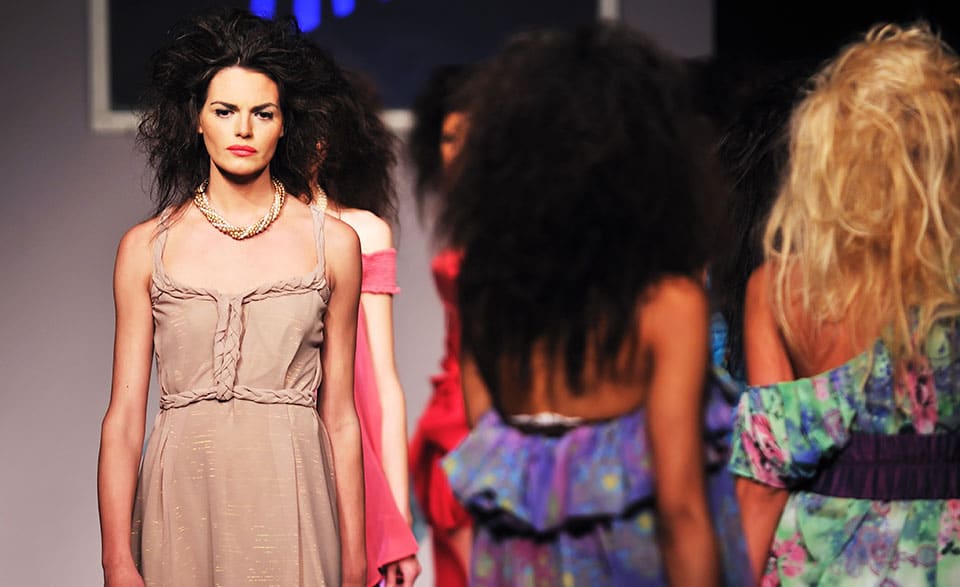7 Stereotypes about Fashion Industry We Should Debunk Now

The fashion industry is one of the most largely misunderstood industries in the world. We theorize and make assumptions based on what we see in the media without actually exploring reality. Half-baked knowledge about anything is no knowledge at all. We must dig deeper into a fact to know whether what we know is right or wrong. Just based on what we hear or see we cannot extrapolate our understanding of everything and everyone in the industry.
Unsurprisingly, there are many misconceptions about the fashion industry we all have. To dispel a few of them, I have written down this piece. These are 7 myths or stereotypes about it I want you to not pay heed to.
- A Piece of Cake
If you thought designing, distributing, and marketing fashion is a piece of cake, then you have to really pay attention. In order to make it in the industry, you have to have a vision and essential skills. Maybe you were an excellent student in the art class back in your school, but that does not mean you can nail it here. Everything that is fashion is the result of the work of so many people, so many machines, and so much money. - Just about clothes
No, the fashion industry, as largely understood, is not just about producing and marketing clothes. There are other aspects of the same which are often ignored. It, today, comprises a world of things and people. These include content creation, magazine coverage, creative direction, photography, and whatnot. You do not have to be here just to sketch out designs and transform them into saleable materials. In this age of digitalization and technological innovation, there is so much one can do in the fashion industry. - Only For Celebrities
What you wear, where you wear, and how you wear anything is determined by the fashion industry. We have begun to associate fashion with the world of celebrities and forget that we, ourselves, are the driving force of the industry. Dedicated designers, photographers, and many others are actively involved in ensuring quality fashion for all of us. The Fashion Industry does not pick and choose. It is here for all of us. - Wasteful Creations
There is no denying that the fashion industry is accountable for at least 10 percent of the total carbon emissions on the earth. But, things have begun to change as people and institutions are becoming ‘woke’ to the urgency of introducing and popularizing sustainable fashion. Today, many designers and companies in the fashion industry are implementing efficient, waste-reducing technologies, promoting recycling of products through programs such as the ones done by Levi’s, and investing money into the development of better support for eco-friendly fashion. - Always Gussied Up
I am not sure why people think that everyone in the fashion industry wakes up in the morning in perfect make-up and dresses to kill. No. The point of the industry is to encourage people to explore their choices through clothes, accessories, and whatnot. For that, those who are a part of the industry need not dress up to ensure that that happens. So, next time somebody says that people in the fashion industry are always dressed up, tell me how much they do not know. - Parties Everywhere
I am not surprised if you thought that the fashion industry is a gala featuring made-up celebrities and powerhouses from around the world. Yes, parties are a common feature in the industry but they are often directed at strengthening professional relationships. You should know that much of the fashion reaches you because of the promotion and capital-intensive deals signed in these parties. For example, designers attend parties so that they can meet celebrities and rope them in whenever they have a project. Parties are a good way to make friends and business partners, and they are not restricted to the fashion industry. - Only for the Rich
I think this point is implied throughout that fashion industry is here for all of us. There are many categories of fashion, of course, which determine who can buy what. For example, luxury fashion is an exorbitant affair for those who cannot spend out much. However, then there is the mass-produced fashion which is not necessarily poor quality as many make it out to be, and is there for all of us. Then, there is a category of designer clothes that are unique and need not be expensive. It is all about what you want, and there surely is an option for you.
World’s Most Trendiest Countries.
World’s Best Countries To Invest In Or Do Business.
Most Startup Friendly Countries.
Add CEOWORLD magazine to your Google News feed.
Follow CEOWORLD magazine headlines on: Google News, LinkedIn, Twitter, and Facebook.
This report/news/ranking/statistics has been prepared only for general guidance on matters of interest and does not constitute professional advice. You should not act upon the information contained in this publication without obtaining specific professional advice. No representation or warranty (express or implied) is given as to the accuracy or completeness of the information contained in this publication, and, to the extent permitted by law, CEOWORLD magazine does not accept or assume any liability, responsibility or duty of care for any consequences of you or anyone else acting, or refraining to act, in reliance on the information contained in this publication or for any decision based on it.
Copyright 2024 The CEOWORLD magazine. All rights reserved. This material (and any extract from it) must not be copied, redistributed or placed on any website, without CEOWORLD magazine' prior written consent. For media queries, please contact: info@ceoworld.biz
SUBSCRIBE NEWSLETTER








